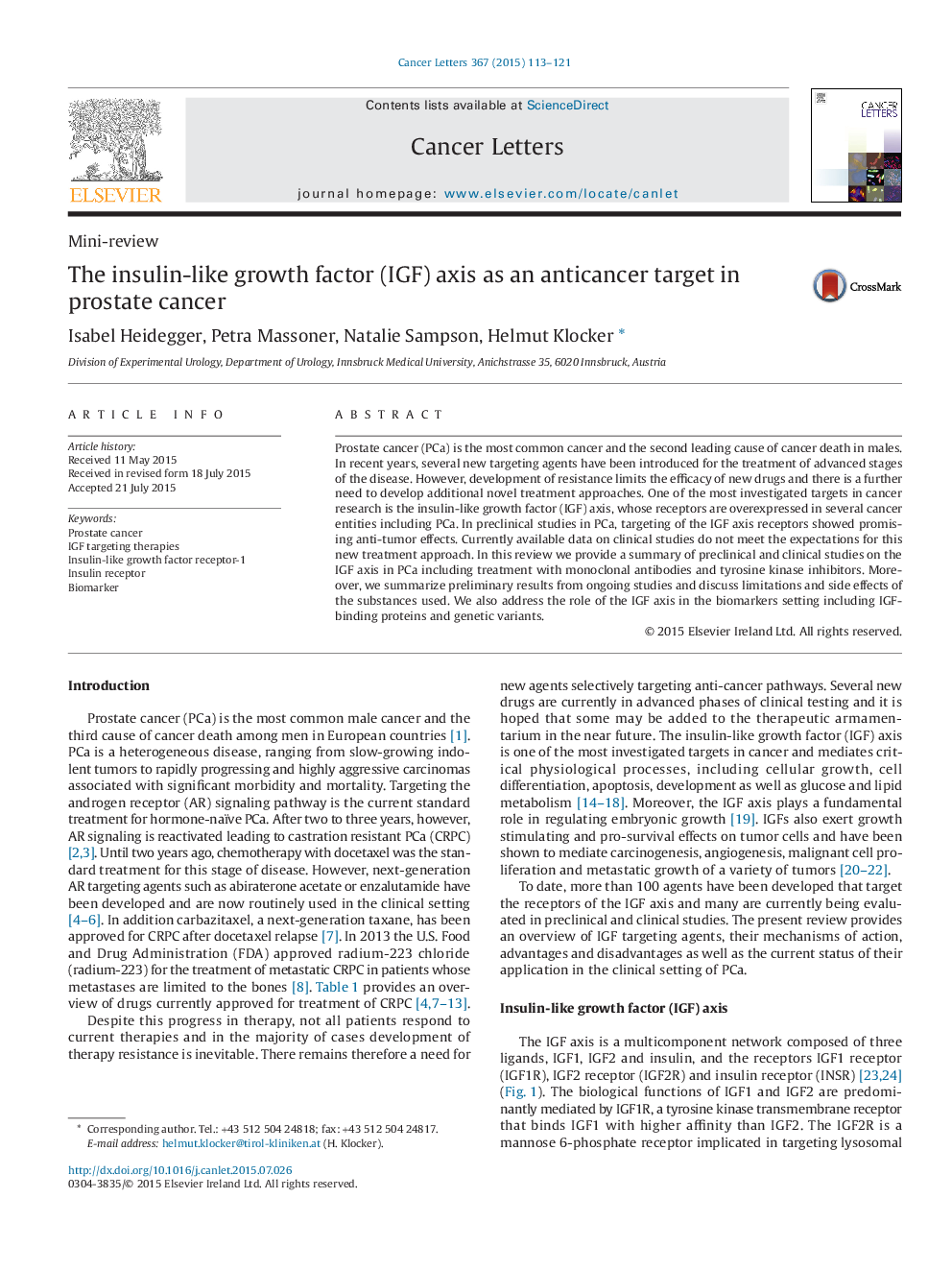| Article ID | Journal | Published Year | Pages | File Type |
|---|---|---|---|---|
| 10899442 | Cancer Letters | 2015 | 9 Pages |
Abstract
Prostate cancer (PCa) is the most common cancer and the second leading cause of cancer death in males. In recent years, several new targeting agents have been introduced for the treatment of advanced stages of the disease. However, development of resistance limits the efficacy of new drugs and there is a further need to develop additional novel treatment approaches. One of the most investigated targets in cancer research is the insulin-like growth factor (IGF) axis, whose receptors are overexpressed in several cancer entities including PCa. In preclinical studies in PCa, targeting of the IGF axis receptors showed promising anti-tumor effects. Currently available data on clinical studies do not meet the expectations for this new treatment approach. In this review we provide a summary of preclinical and clinical studies on the IGF axis in PCa including treatment with monoclonal antibodies and tyrosine kinase inhibitors. Moreover, we summarize preliminary results from ongoing studies and discuss limitations and side effects of the substances used. We also address the role of the IGF axis in the biomarkers setting including IGF-binding proteins and genetic variants.
Related Topics
Life Sciences
Biochemistry, Genetics and Molecular Biology
Cancer Research
Authors
Isabel Heidegger, Petra Massoner, Natalie Sampson, Helmut Klocker,
